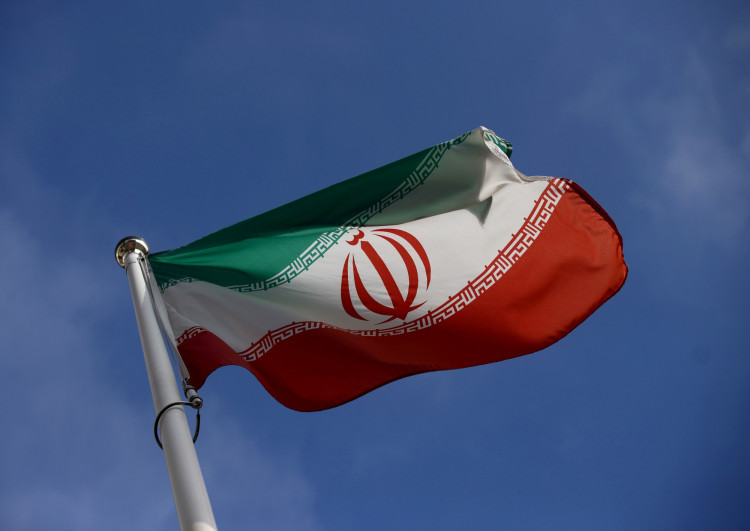In a significant escalation of hostilities in the Middle East, Iran launched a barrage of ballistic missiles at Israel on Tuesday, marking a stark response to the recent assassinations of key Hezbollah and Hamas leaders by Israeli forces. The Iranian Revolutionary Guards claimed responsibility for the missile strikes, asserting that this represented only a "first wave" of retaliation. The missile attack prompted air raid sirens to sound across Israel, with residents urged to seek shelter amid reports of multiple explosions in cities such as Tel Aviv and Jerusalem.
Initial reports indicated that the Israeli air defense systems, including the Iron Dome, were activated, intercepting some of the incoming missiles. Rear Adm. Daniel Hagari, an Israeli military spokesman, confirmed that while the defense system was operational, it was not infallible. "The defense is not hermetic," he cautioned, highlighting the potential severity of the attack.
Iran is raining rockets on Israel. Remember this when Israel answers back. And they will answer back. pic.twitter.com/XFAkhiRlKi — Aviva Klompas (@AvivaKlompas) October 1, 2024
The strikes come on the heels of a series of airstrikes by Israel targeting Hezbollah in southern Lebanon, which were described as limited ground operations. Israeli forces had intensified their military campaign against Hezbollah, citing the need to eliminate the militant group's capabilities following the assassination of its leader, Hassan Nasrallah, along with several top commanders. In response to the missile strikes, a senior U.S. official reiterated the potential for "severe consequences" should Iran continue its aggressive actions against Israel, indicating that U.S. military assets were positioned in the region to assist in defense efforts.
Iran's state television announced the missile strikes shortly after the White House convened President Joe Biden and other senior officials to assess the situation. Videos purportedly showing the missile launches were broadcasted, though Iranian officials initially refrained from confirming the attacks. A senior Iranian official stated that the order for the missile strike came directly from Supreme Leader Ayatollah Ali Khamenei, emphasizing the high stakes involved in this military escalation.
The military actions have raised fears of a wider regional conflict, with the potential to draw in various international actors, including the United States. The U.S. has positioned ships and aircraft in the area, signaling its commitment to supporting Israel. Meanwhile, the Israeli government has issued warnings for citizens to remain vigilant and sheltered as the situation remains fluid.
Amidst the chaos, Iran warned that any Israeli retaliation would meet with an even more severe response, indicating that this exchange could escalate further. "If Israel retaliates, our response will be more crushing and ruinous," a statement from the Iranian Revolutionary Guards read, signaling Tehran's readiness to further engage militarily.
The conflict has deep roots, with both Israel and Iran acting as regional power players. The recent airstrikes by Israel in Lebanon were part of a larger campaign against Hezbollah, which had begun firing rockets into northern Israel following the outbreak of war in Gaza on October 7. The fighting in Gaza and Lebanon has led to significant casualties and displacement, with reports indicating that over 1,000 people have been killed in Lebanon alone, including a substantial number of women and children.
Hezbollah, positioned as Iran's primary proxy in Lebanon, has vowed to continue its rocket attacks on Israel until a ceasefire is established in Gaza. The ongoing violence raises questions about the effectiveness of existing peace agreements and international mediation efforts. The United Nations Security Council had previously called for a cessation of hostilities, but those resolutions have largely gone unenforced, contributing to the current cycle of violence.
Reports indicate that Israeli forces have engaged in localized ground raids within Lebanon, focusing on specific Hezbollah positions to gather intelligence and disrupt the group's military infrastructure. While these actions have drawn criticism from Hezbollah, which has denied any direct incursion by Israeli troops, the Israeli military maintains that the objective is to protect its northern border and allow residents to return to their homes.




